How Tobacco Can Affect Your Sperm Count – Everything You Need To Know
Introduction Tobacco has been linked to several health problems, but many men don’t realize it can also directly impact fertility. Smoking or chewing tobacco not only affects your lungs and heart but can also reduce sperm count, damage sperm quality, and lead to long-term reproductive challenges. If you and your partner are trying to conceive, understanding the connection between tobacco use and sperm health is crucial. In this guide, we’ll explain: How tobacco affects sperm production and quality Common symptoms and warning signs of fertility issues in men Medical tests you can book to check your reproductive health How quitting tobacco can improve your chances of fatherhood FAQs answered by oncologists and andrologists If you’re concerned about your fertility, you can easily book a test or consult an oncologist or andrologist through Quickobook from the comfort of your home. Understanding Sperm Count and Its Importance Sperm count refers to the number of sperm present in one milliliter of semen. The World Health Organization (WHO) considers a normal sperm count to be 15 million sperm per milliliter or more. A healthy sperm count is important because: It increases the chances of successful fertilization It reflects overall reproductive health It is linked to the genetic quality of future offspring Low sperm count (oligospermia) or complete absence of sperm (azoospermia) can make conception difficult or impossible without medical intervention. How Tobacco Damages Sperm Health Tobacco contains over 7,000 chemicals, many of which are toxic to sperm. Here’s how smoking or chewing tobacco can harm your reproductive system: 1. Reduction in Sperm Count Nicotine, carbon monoxide, and heavy metals like cadmium and lead interfere with sperm production in the testes. Studies have shown that male smokers have 23% lower sperm concentration compared to non-smokers. 2. Poor Sperm Motility Even if sperm count is normal, tobacco can reduce motility (the sperm’s ability to swim). Poor motility lowers the chances of sperm reaching and fertilizing the egg. 3. DNA Damage in Sperm Chemicals in tobacco generate oxidative stress, leading to DNA fragmentation in sperm cells. This can cause miscarriages or developmental issues in children. 4. Hormonal Imbalance Tobacco disrupts testosterone production, which is essential for sperm development and sexual function. 5. Erectile Dysfunction Long-term tobacco use can damage blood vessels, reducing blood flow to the penis and causing erectile dysfunction, indirectly affecting fertility. READ ALSO: Hiv Prevention: Complete Guide To Staying Protected Scientific Evidence Linking Tobacco and Infertility Multiple studies confirm the harmful impact of tobacco on male fertility: A 2016 review in the journal Reproductive Biology and Endocrinology found that smokers had lower sperm counts and poorer morphology. Research from the American Society for Reproductive Medicine shows smoking can delay conception by several months. DNA damage from tobacco use has been associated with a higher risk of birth defects. Symptoms of Tobacco-Induced Fertility Issues You may not notice changes immediately, but signs of sperm damage due to tobacco can include: Difficulty conceiving after one year of unprotected intercourse Low libido Weak or absent morning erections Changes in semen color or volume Testicular discomfort If you notice these symptoms, consult an andrologist through Quickobook or book a test to evaluate your fertility status. Medical Tests to Check Sperm Health If you are worried about your sperm count, here are some common tests: Semen Analysis Measures sperm count, motility, and morphology Can be booked through Quickobook in a few clicks Hormone Tests Checks testosterone, FSH, LH, and prolactin levels Scrotal Ultrasound Detects issues like varicocele, which can worsen with tobacco use DNA Fragmentation Test Identifies genetic damage in sperm How Quitting Tobacco Improves Fertility The good news is that quitting tobacco can reverse some of the damage. Within three months of quitting: Sperm count and motility may improve DNA damage can be reduced Hormone levels start normalizing For faster recovery, pair quitting tobacco with: A nutrient-rich diet (zinc, selenium, antioxidants) Regular exercise Adequate sleep Lifestyle Changes to Boost Sperm Count After Tobacco Damage Stop tobacco use completely – even occasional smoking or chewing harms sperm. Eat fertility-friendly foods – spinach, walnuts, eggs, and citrus fruits. Stay hydrated – improves semen volume. Reduce alcohol and caffeine – both can worsen sperm quality. Manage stress – chronic stress affects testosterone levels. Quickobook – Your Partner in Men’s Health With Quickobook, you can: Book a test for semen analysis, hormone levels, and more. Consult leading andrologists and oncologists without traveling. Access reports online, making it easier to track progress after quitting tobacco. Whether you’re in a metro city or a small town, Quickobook helps you get expert fertility care at your fingertips. FAQs on Tobacco and Sperm Count – Answered by Oncologists and Andrologists Q1. How quickly can tobacco affect sperm count? Tobacco can start damaging sperm within weeks of regular use. However, the full impact is usually seen after months or years of continuous use. Q2. Can quitting tobacco completely restore sperm count? In many cases, sperm health improves within 3–12 months of quitting, though DNA damage may take longer to repair. Q3. Is chewing tobacco less harmful than smoking for sperm health? No. Chewing tobacco contains nicotine and carcinogens that can damage sperm just like smoking. Q4. Can tobacco use cause permanent infertility? Yes, in severe cases where sperm production stops completely or DNA damage is irreversible, infertility may be permanent. Q5. Should I see an oncologist for tobacco-related fertility issues? An oncologist is essential if tobacco has led to cancer risks, but an andrologist is the primary specialist for male infertility. Q6. Can second-hand smoke also affect sperm count? Yes. Regular exposure to second-hand smoke can lower sperm quality and testosterone levels. Q7. How can I book a sperm count test easily? You can book a test for semen analysis via Quickobook and get reports without visiting a hospital in person. Final Thoughts Tobacco is one of the leading preventable causes of male infertility. Its impact on sperm count, motility, and DNA integrity can delay or prevent conception. If you use tobacco and are facing difficulty in conceiving, it’s important to act now—quit tobacco, adopt a healthy lifestyle, and seek medical help. Quickobook makes it easier than ever to connect with experienced andrologists and oncologists or to book a test for your sperm health. Early diagnosis and treatment can make all the difference in your fertility journey.
Read More
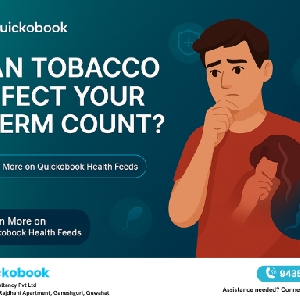
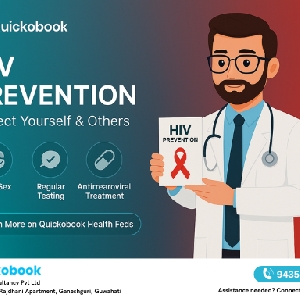

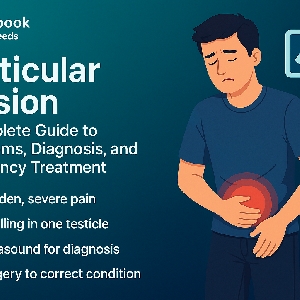

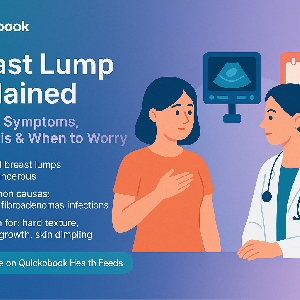
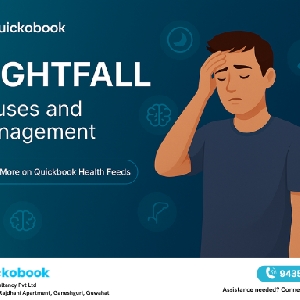
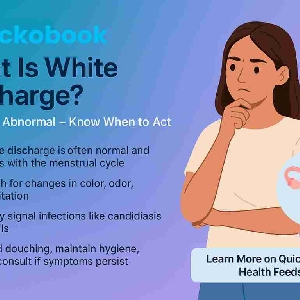
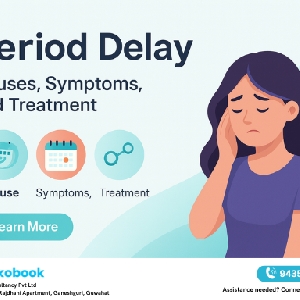


 Play Store
Play Store